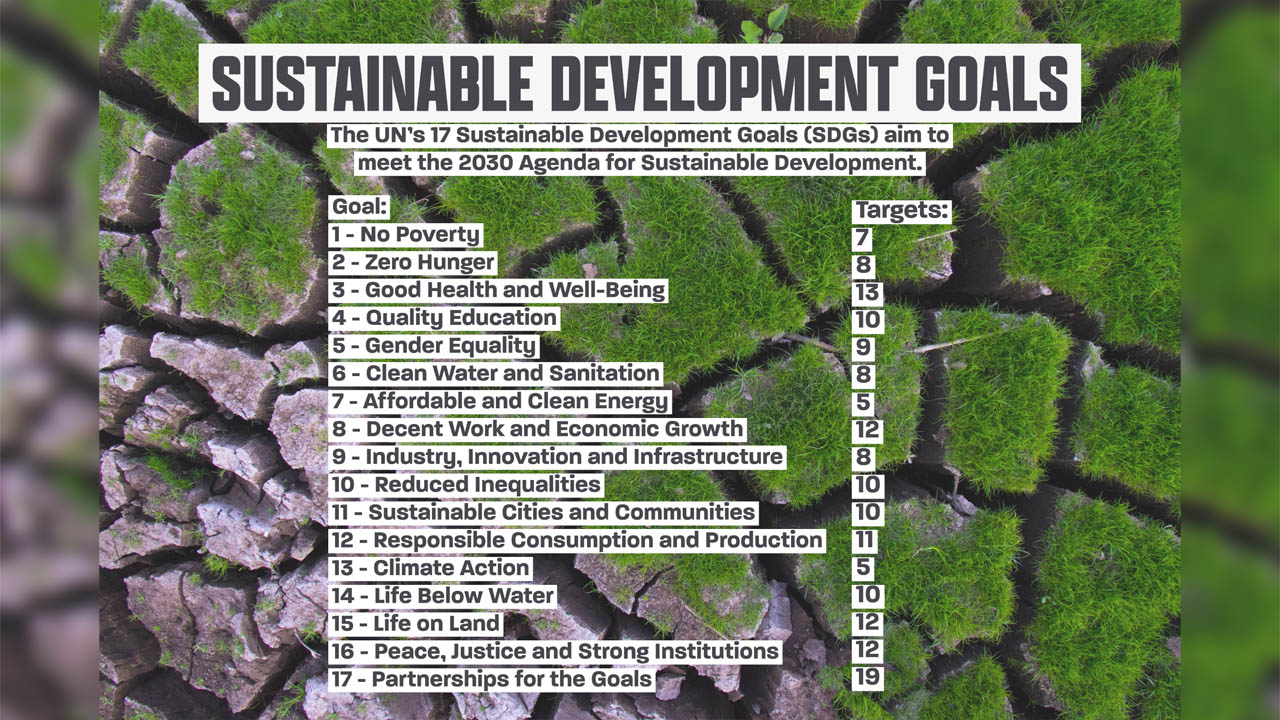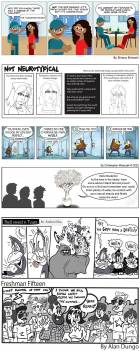Your SDG orientation
 CREDIT: FANSHAWE SUSTAINABILITY
CREDIT: FANSHAWE SUSTAINABILITY17 Sustainable Development Goals (SDGs) that guide the world to take action for a better future.
Before you start reading this article, take a deep breath and look around.
What you see is part of our reality; our habitat, our home. If no corrective step is taken, the situation you just saw may turn for the worse. This is where we need to think about sustainability— It is that corrective step; an investment for a better future.
In 2015, the United Nations (UN) adopted the 2030 Agenda for sustainable development, to mitigate the various issues our world is facing. It aims for peace and prosperity for all by the year 2030. For this, it adopted 17 Sustainable Development Goals (SDGs) that guide the world to take action for a better future. Here, the issues addressed not only include those concerning and protecting the environment, but also people and their wellbeing. The traditional understanding and definition of sustainability, typically viewed as focused on the environment, now emphasizes sustainable development— building a world in which everyone is empowered and thrives.
It has become imperative, now more than ever, for us to make the 17 SDGs part of our everyday actions; from the products we choose to the lifestyle we adopt. What makes it more compelling to think and act with these goals in mind is that all of us are the stakeholders, the affected, and we can be the changemakers. Although the process has been slow across the globe, positive progress has been made, despite a myriad of challenges.
On campus, Fanshawe — your home for now— is taking steps to implement sustainable development across the board. In 2014, Fanshawe submitted its first Sustainability Tracking, Assessment and Rating System’s (STARS) report, which received a silver rating; in 2018, it was elevated to gold. STARS measures an educational institution’s sustainability performance and rates it, providing a framework whereby progress can be measured. There is always room for improvement and more milestones to achieve, with the goal of becoming a platinum-rated college.
Fanshawe Student Union (FSU) President Ismail Aravai said that the Union always incorporates sustainability in its activities and initiatives and continuously promotes and educates students about sustainability through its awareness weeks.
“Most of the things at our restaurant are either recyclable or compostable. We usually ask our clubs/sustainability office to beat some of our events to help educate students on where to direct their waste. We have water-filling stations and compost bins in the Student Centre,” he said and added that he isopen to feedback from students on how the Union can implement sustainability in its operations.
On the environmental front, Fanshawe has worked towards reducing greenhouses gas (GHG) emissions through the Greenhouse Gas Reduction Roadmap and Action Plan. To date, projects have resulted in GHG emissions being reduced by 17,000 tons and about $15 million in energy savings. The aim is to reduce GHG emissions by 80 per cent by 2050.
One of the SDGs calls to “ensure inclusive and equitable, quality education and promote lifelong learning opportunities for all.” Education is a powerful tool for better life, and a glimmer of hope to end poverty across the globe. In this area, an important target is access to and equitable education, infrastructure, and quality education. There is also a call for including sustainable development goals in higher education. This is where Fanshawe Sustainability comes into the picture.
Amanda Whittingham, Sustainability Coordinator at Fanshawe, said, “Fanshawe Sustainability’s vision is a campus where strategic planning is done through a sustainability lens, all users become engaged in some aspect of sustainability, and students graduate with the knowledge and skills needed to affect positive change in our world.”
Any institution is made for and by its students, who take its ideals far and beyond. We are a diverse set of students bubbling to spread our wings and achieve the best. Although we are guided by the infamous “invisible hand,” we need to be mindful about what we do and keep sustainability in focus.
Source: sdgs.un.org















